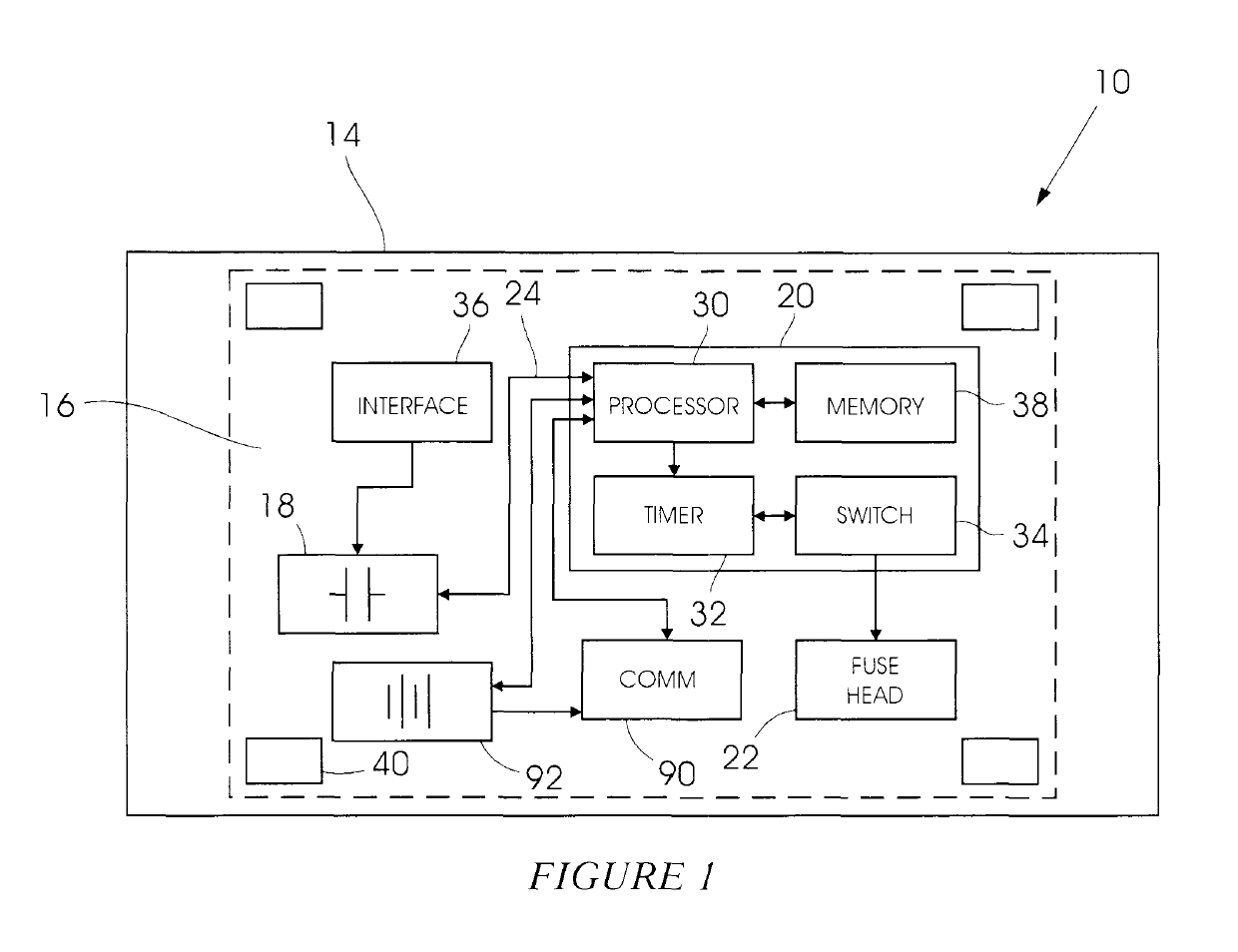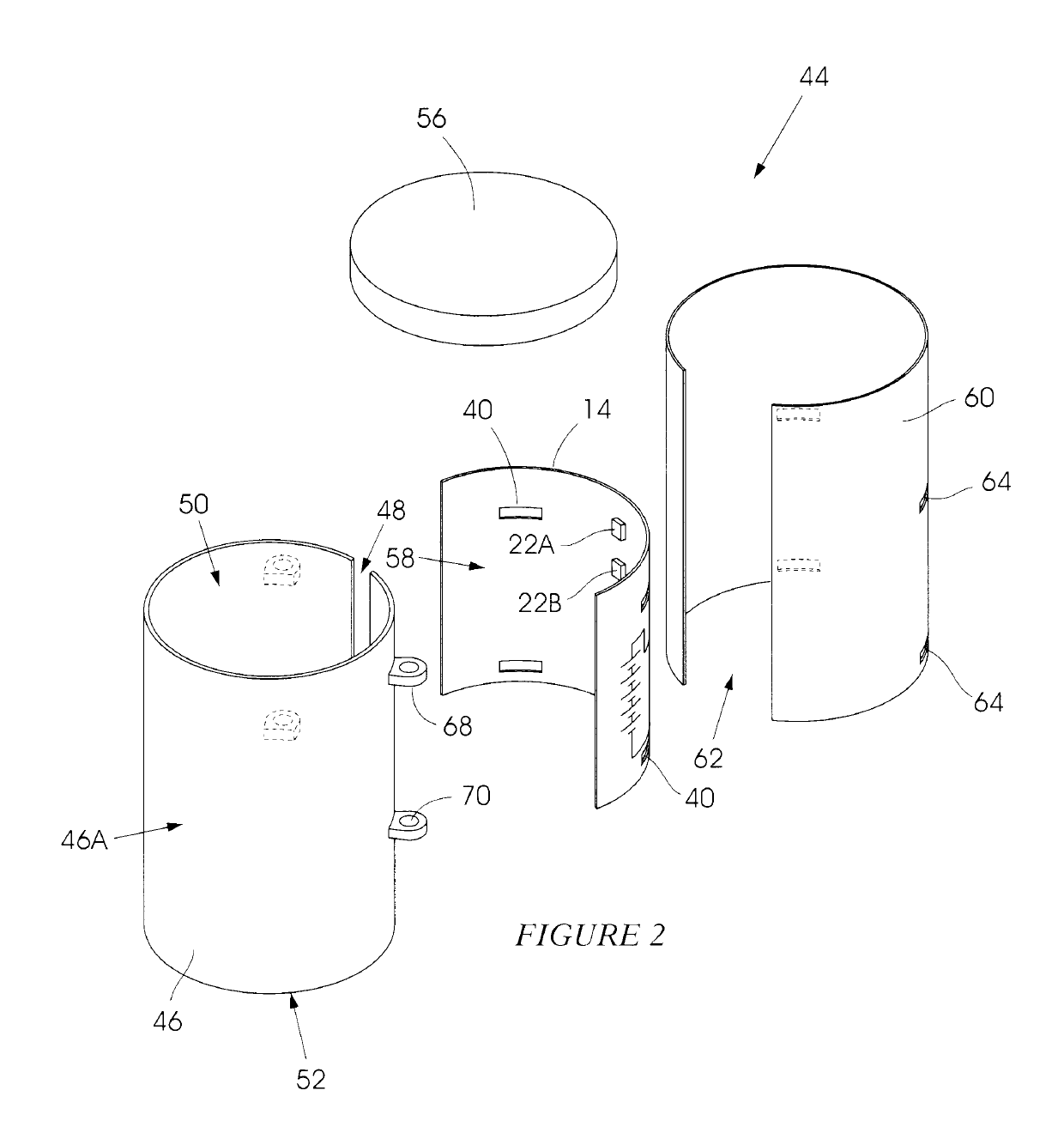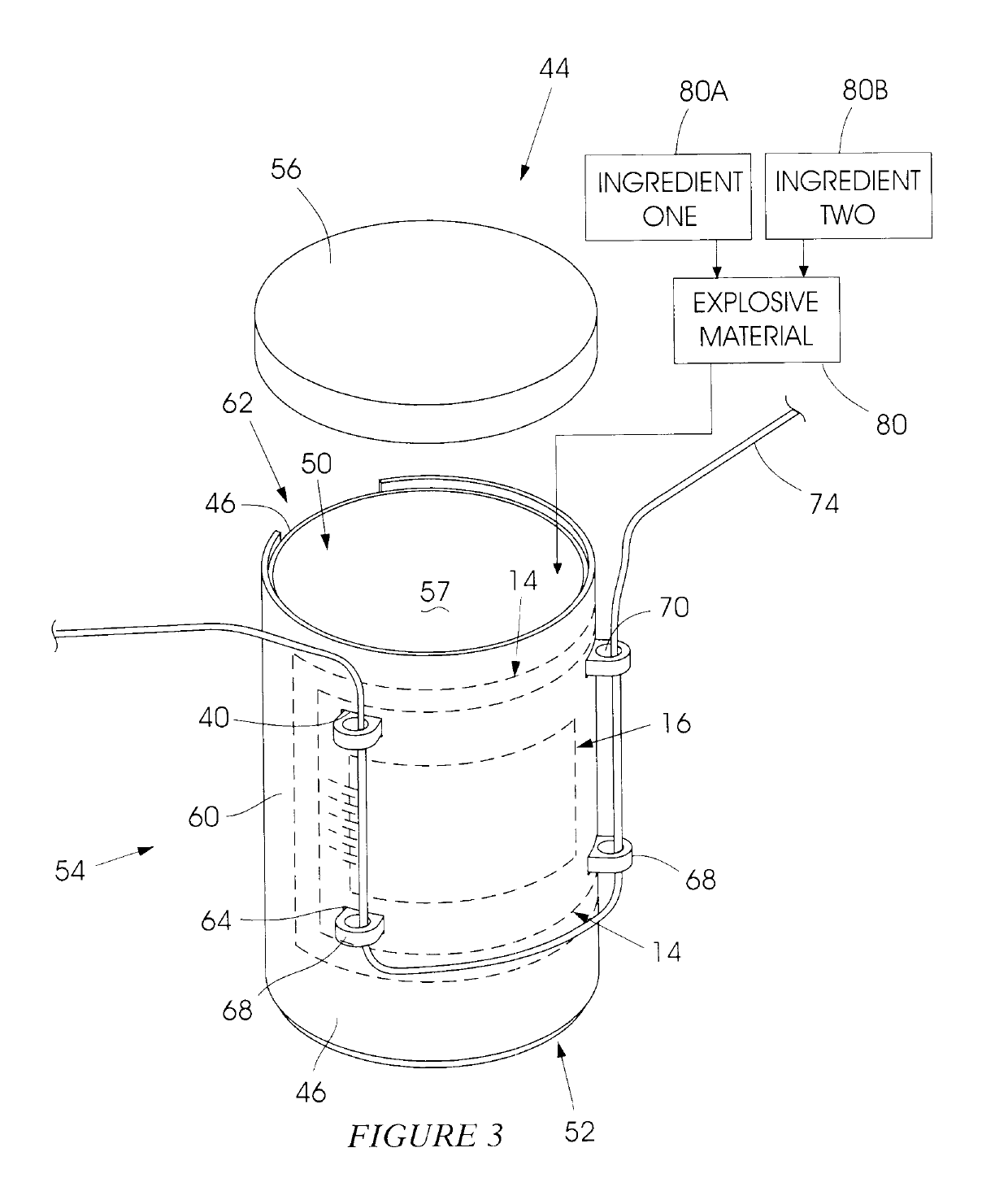Booster comprising a printed electronic circuit
a printed electronic circuit and booster technology, applied in the direction of printed circuit aspects, weapons, photovoltaic energy generation, etc., can solve the problems of inability to bend or easily manufacture a complex geometric shape, rigid board used for the printed circuit, and inability to make modifications to the basic circuit, etc., to achieve the effect of convenient shipping and transportation
- Summary
- Abstract
- Description
- Claims
- Application Information
AI Technical Summary
Benefits of technology
Problems solved by technology
Method used
Image
Examples
Embodiment Construction
[0026]FIG. 1 of the accompanying drawings is a block diagram representation of a printed electronic circuit 10 suitable for use in a booster component according to the invention. The printed electronic circuit includes a flexible substrate 14 made from any suitable, tough, non-electrically conductive material as is known in the art. Printed on the substrate are a photovoltaic cell 16 which constitutes an energy-harvesting module, a capacitor 18, a control circuit 20 and a fuse head 22. The photovoltaic cell 16 covers a substantial area of the substrate 14. The cell preferably covers all regions of the substrate 14 not occupied by the elements 18, 20 and 22 nor by interconnecting circuit lines 24 which couple the elements to one another.
[0027]The design of the cell 16 is such that, when exposed to light, the cell 16 converts the light into electrical energy at a suitable voltage which is used to charge the capacitor 18. The capacitor 18 is a low-leakage device and is also fabricated ...
PUM
 Login to View More
Login to View More Abstract
Description
Claims
Application Information
 Login to View More
Login to View More - R&D
- Intellectual Property
- Life Sciences
- Materials
- Tech Scout
- Unparalleled Data Quality
- Higher Quality Content
- 60% Fewer Hallucinations
Browse by: Latest US Patents, China's latest patents, Technical Efficacy Thesaurus, Application Domain, Technology Topic, Popular Technical Reports.
© 2025 PatSnap. All rights reserved.Legal|Privacy policy|Modern Slavery Act Transparency Statement|Sitemap|About US| Contact US: help@patsnap.com



